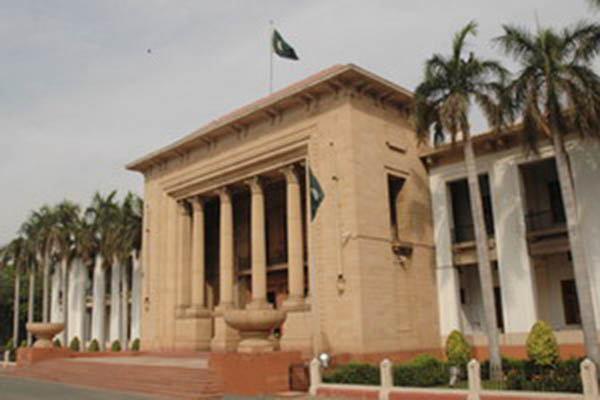Lahore, May 21: In the face of strong opposition, the Punjab Assembly passed the highly controversial Defamation Bill aimed at controlling the spread of fake news and misinformation, whilst also rejecting all the proposed amendments by the Opposition. The Bill has been slammed on all fronts, including by the political opposition, journalist groups, and the Human Rights Commission of Pakistan who said the “bill throttles free expression”.
The bill aims to control the spread of misinformation and fake news via social media forums such as YouTube, Facebook, X, Tik Tok, Instagram, with the bill allowing defamation of those found guilty of spreading ‘fake news’.
The draft of the bill proposes a special tribunal to try those involved in drafting, publishing and/or airing “fake news”, who shall decide the case within six months with the accused becoming liable to a fine of up to PKR 3 million. However, in cases of allegations against individuals holding constitutional posts, the high court will hear the cases.
The draft further stated that the government will provide legal assistance to women and transgender individuals in defamation cases through an official legal team.
The assembly witnessed a huge uproar during the motion when Punjab’s Minister of Parliamentary Affairs Mujtaba Shuja-ur-Rehman tabled the ‘controversial’ bill, while the journalists boycotted the proceedings to register their protest. The protests were led by the PTI-backed Sunni Ittehad Council, as well as several journalist groups with the opposition group tearing up several copies of the bill.
Speaking on the Punjab Assembly floor, Opposition Leader Ahmed Khan Bhachar termed the bill a “black law” and said his side of the bench would not partake in passing the legislation, further wondering why the treasury was “in a hurry to pass the bill before midnight”.
PTI-backed SIC member Rana Shahbaz Ahmad claimed that opposition members of the special committee were not present during the vetting of the bill — one of three members was abroad, another in a court of law and the third was not heard by the treasury members. He opined that the judge of the tribunal must be appointed by the chief justice, rather than the government, otherwise it would be damaging for society.
Journalist groups began protesting enmasse, with Lahore Press Club president Arshad Ansari telling the protesting journalists that while the government engaged them in negotiations for over two hours, they did not agree to the suggestion of postponing its approval for one week to allow the stakeholders to have consensus on the matter.
In his statement Ansari said “Today, the journalist community has been attacked, we will not compromise on the freedom of the press. These government members are the ones who introduced the PECA law in Pakistan.
“When they are in opposition, they become champions of press freedom, but when they come into power, they want to control the media.”
Apart from the opposition parties and journalist groups, the country’s Human Rights Commission also condemned the bill releasing an official statement saying: “Punjab defamation bill throttles free expression”. It said “The Human Rights Commission of Pakistan (HRCP) has expressed grave concern over the draft defamation bill tabled in the Punjab Assembly. The content and language of the bill is troubling on several counts.,” adding that it was also “concerned by the haste in which this bill is being tabled.”








